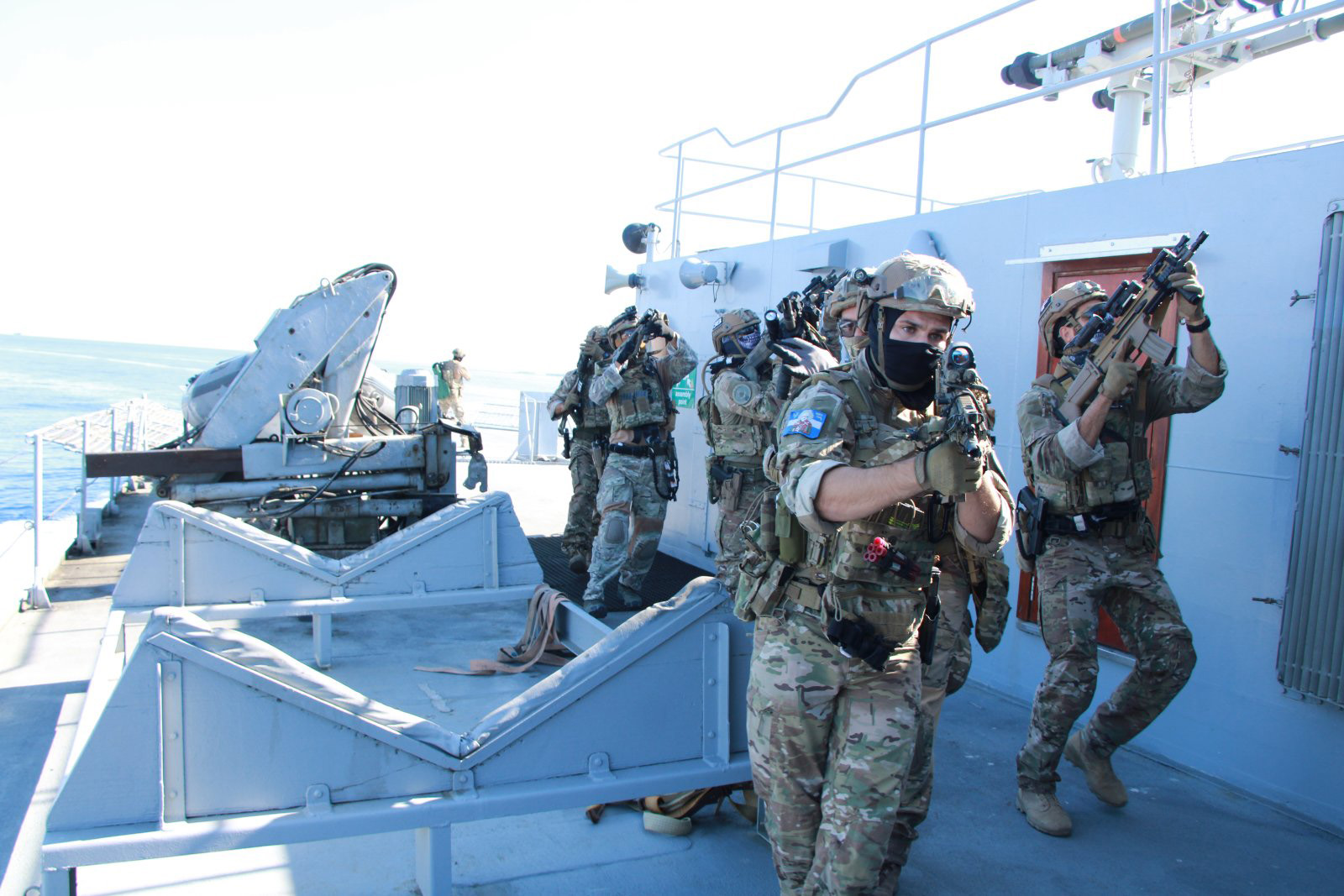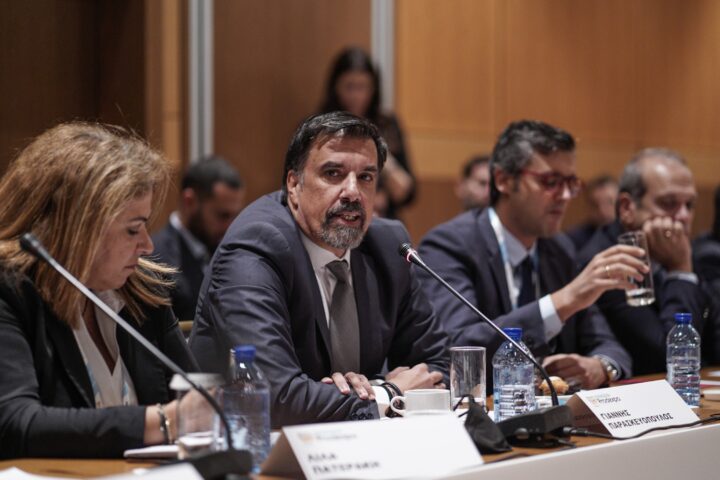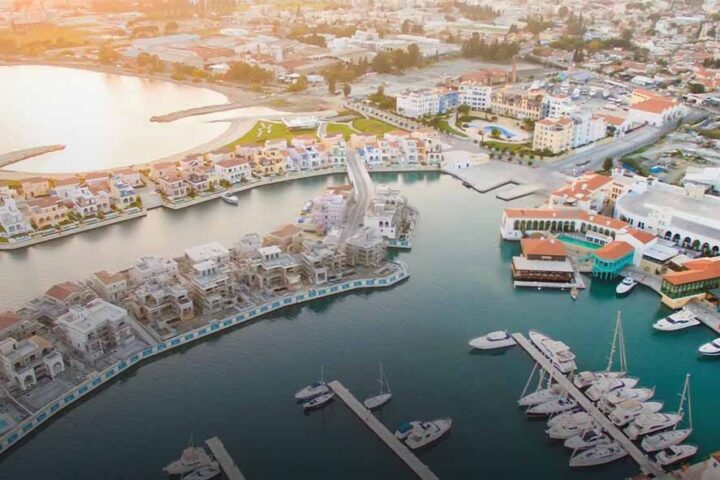The absence of an international authority to enforce international law is all too evident in the Republic of Cyprus.
The United Nations behaves like Pontius Pilate regarding the invasion and occupation of the north, the European Union systematically turns a blind eye to Turkish violations of Cyprus Exclusive Economic Zone (EEZ), as defined and recognised by the UN Convention on the Law of the Sea (UNCLOS).
Double standards and hypocrisy are more than evident regarding “sanctions” against Turkey, which invaded and has been occupying Cyprus, an EU member, for almost 50 years.
By contrast, sanctions against Russia were agreed on the very same day of the invasion of Ukraine, with Cyprus agreeing to them without demanding simultaneous sanctions against Turkey, which are being deferred and discussed.
The Russian invasion of Ukraine and the Turkish invasion of Cyprus are comparable cases where raw military force was used against weaker states in violation of international law.
Still, in the case of Cyprus, western sensitivity is legally inadmissible and morally reprehensible.
Material resources are a major determinant of power.
The military rise of Turkey after the collapse of the Ottoman Empire was inevitable, given the territory and resources granted to it by the western powers under the 1923 Treaty of Lausanne that superseded the 1920 Treaty of Sèvres.
In 1922, Greece lost a huge part of its rightful historical legacy with its defeat.
Turkey capitalised on its assisted victory to become an industrial country in the G20, while Greece repeatedly failed.
While Turkey exploited its resources, large internal market, and geopolitical position to produce wealth and systematically expand its military assets, Greece did not learn from its mistakes and devastating defeat.
Over 50 years later, Greece tragically repeated a similar fatal error in Cyprus that backlashed.
History never forgives hubris committed twice.
Greece, enclaved in an unjustified syndrome of Turkophobia since 1922, refused to defend Cyprus in 1974, even though it was the Greek military junta that gave Turkey the long-awaited pretext to invade.
Turkey’s occupation of northern Cyprus constitutes just as great a catastrophe as in Asia Minor in 1922, with geopolitical repercussions that reduce national options.
Greece’s refusal to fight in 1974 under the much better balance of power of the time has compromised its very own security and pushed it into its current predicament where Turkey claims half the Aegean and vast expanses of its EEZ.
If Greece had defended Cyprus as a guarantor power, almost certainly, the Turkish “blue homeland” assertive foreign policy would never have arisen.
Falling into the Thucydidean trap of a revisionist and aggressive Turkey was inescapable, as Greece was not blessed with visionary leaders able to evaluate evident long-term trends, heed the call of history and protect, foremost their own country’s national interests.
The shameful “Cyprus is far away” was uttered without considering that Turkey is also a very close neighbour of Greece, and the day of reckoning would not be long.
Refusal to defend the EEZ of Cyprus or even of Kastelorizo brought about the “Turkish-Libyan memorandum”, proving again that Turkish planning and perseverance supported by military power achieves results without firing a shot.
If Greece ever demilitarises its Aegean islands, sooner rather than later, they will suffer the fate of Cyprus in 1974.
Less than seven years passed from the withdrawal of Greek troops from Cyprus in 1967 to the Turkish invasion.
Greece should learn the lessons of the past and rearm as fast as possible to restore the balance of power with Turkey and avoid the dishonour of 1974 in Cyprus, the disgrace of Imia in 1996 and the fate of Ukraine in 2022.
Preparing for war is the only way to preserve peace.
In contrast to Greece, Turkey has constantly set and steadfastly promoted measurable objectives as a national strategy, irrespective of party politics.
Such as the repossession of Cyprus based on the Nihat Erim Report of 1956, turning the Aegean into a disputed grey area, becoming the major actor in the East Mediterranean, establishing a military industry, developing into a nuclear power and joining the league of superpowers.
EastMed pipeline
Becoming an energy hub by controlling energy flows through a network of pipelines via Turkish territory and holding Europe hostage to the extent feasible is also a major aim on the chessboard of the energy game.
This includes directing natural gas reserves of the Eastern Mediterranean via a pipeline to Turkey.
The Nord Stream 2 pipeline and the Russia-Ukraine pipeline examples indicate the trap Cyprus will fall into, whether via Turkey or Egypt.
Therefore, a pipeline transporting Cypriot (and other East Med) natural gas to Turkey should only be contemplated after a fair solution of the Cyprus problem, which means a fully independent Cyprus, with no Turkish guarantees or armies on its territory that would turn it into a satellite and lead to the destruction of Hellenism.
The recent withdrawal of American diplomatic support for the EastMed pipeline, now also seconded by France, which has followed Italy, presents no problem as that project has never been in the best interests of Cyprus.
The EastMed pipeline was an American-inspired tool in the first place regarding gas supplies to Europe, so the US could pressure Russia and Turkey, which has been flirting with Moscow with successful dexterity, thus achieving maximal benefits from both camps by using pendulum diplomacy.
The EastMed was a defunct project from the beginning, an unwarranted pipedream both technically and economically.
It was kept alive as a poor PR exercise that only aggravated Turkey and simply served certain private commercial interests receiving EU funding.
No major company ever expressed any investment interest in the EastMed pipeline and was even undermined by Greece (originally suggesting a pipeline via Egypt) in a way that clearly ignores legitimate Cypriot interests.
Panayiotis Tilliros, senior economist at the Ministry of Finance, Research Associate at the Cyprus Center for European and International Affairs, affiliated with the University of Nicosia










